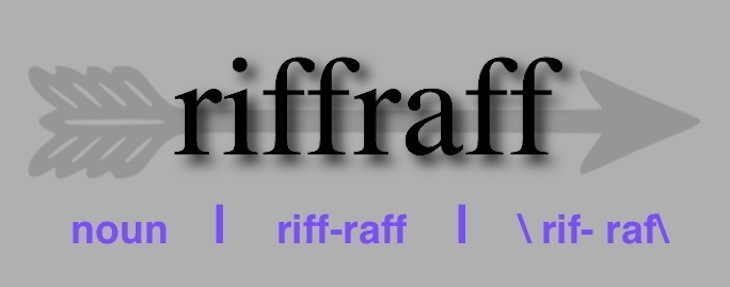Riff Raff: FOIA in Fort Smith is almost DOA, Part I
by August 13, 2018 6:02 pm 1,495 views

One may need a healthy dose of that still unavailable medical marijuana if hoping for a timely, cooperative and convenient response from Fort Smith city government to a Freedom of Information Act request (FOIA). That, or an attorney on speed dial.
Have monitored the city of Fort Smith since 1992, with six years of that sometimes partnering with the city during my employment at the Fort Smith Chamber of Commerce. With each new batch of fresh faces on the city’s board of directors, with each new city administrator, with each new city public relations person, with each new pledge to usher in new leadership, one hopes the city will possess a sincere and consistent desire to abide by not only the letter of Arkansas’ FOIA, but by the spirit of that law; a spirit vested in the belief that state and local government is the business of the people, and the people have the right to a full accounting of its operation.
This is the “Legislative Intent” of the state’s FOIA law: “It is vital in a democratic society that public business be performed in an open and public manner so that the electors shall be advised of the performance of public officials and of the decisions that are reached in public activity and in making public policy. Toward this end, this chapter is adopted, making it possible for them or their representatives to learn and to report fully the activities of their public officials.”
But hopes are naive. New faces have yet to produce new outcomes. As Roger Daltrey lyrically noted: “Meet the new boss, same as the old boss.”
One could go back further, but to keep this first essay from being a Dostoevsky piece, let’s begin in 2004 with Harris v. Fort Smith. The city tried to skirt open meeting rules when buying a piece of downtown property. City resident David Harris sued. The case ultimately ended up in the Arkansas Supreme Court. Harris won. The ruling is now excellent case law on how to not conduct the public’s business. If you’re searching for a sincere mea culpa from the city on that episode you might want to begin searching for something easier, like Bigfoot, or a functioning Congress.
Fast forward to when the city and Sebastian County joined together to build a water park. Remember the time a consultant came to town, but was told by city leadership to not be honest about the likely true costs of the project? I do. Classic hide-the-ball game. Sure enough, the $8 million project morphed into an almost $12 million project when completed.
But $12 million is pocket change. The $480 million consent order hit town and before the public had any chance for input the city board was told by city staff and attorneys that they had to accept it or all nine levels of hell would break open at the same time and each home would have an assigned federal officer restricting toilet flushes to one a day. OK, that’s not true, but the existential crisis thrust on the city board to fix the city’s sewer system was no less intense. Or crazy. The city board and the public were not allowed to know anything about negotiations between city and federal authorities. Costs, methods of payment and the extent of system fixes were either estimates or unknowns. Media efforts to FOIA city and federal documents related to the negotiations were rejected. Sewer rates have in the last three years risen 167% and are likely to keep rising. Water rates could be next. But that’s none of your business.
This literal shit storm and the blocking of attempts for public insight continue. City Administrator Carl Geffken recently held meetings with state and federal agencies to seek relief from the order. They are to meet soon in Dallas. But the public and media are not welcome. Take a second to think about this scenario: A municipal public body is meeting (and has met) with a state public body and two federal public agencies to discuss how to fix public infrastructure using public (ratepayer and taxpayer) dollars, but the public/media is not allowed to witness the discussions. The message is clear: This is none of your business. Shut your mouth, and open your wallet.
“Only meetings of the elected body are public,” Geffken responded when asked why the media was not allowed to listen in on a conference call with the state and federal agencies about possible consent decree relief. “According to the logic contained in your statement, all meetings with any public employee should be open. We believe in public information but the Freedom of Information Act does not envision that extreme level of openness.”
A meeting among numerous public bodies about possibly the most consequential item ever on the city’s priority list is nothing like a meeting with “any public employee.” Again, there is no appreciation for the public’s interest in an estimated $480 million consent decree. What about transparency? Or, maybe a better question: What is feared in full disclosure of what was said during the call?
Also, in the initial question to Geffken about the public/media not allowed to listen to the discussions, I did not mention the FOIA. He brought it up. Used it for cover. The city of Fort Smith violates the letter of the law when it is convenient and hides behind the letter of the law when it is convenient. Heads they win, Tails you lose.
Arkansas’ FOIA sets a minimum for what governments must do. It does not inhibit public access nor dissuade “an extreme level of openness.” Hell, I’d settle for a moderate-to-somewhat begrudging level of openness.
More on that in Part II.
